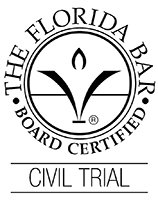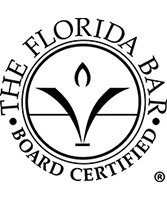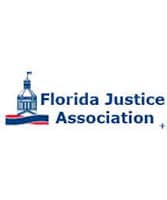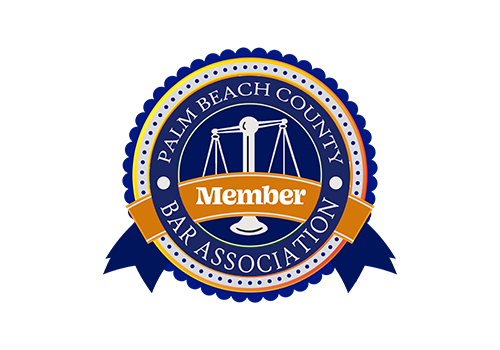

Are you a medical provider treating a patient for their injuries suffered in a motor vehicle accident? Did their insurance company deny or underpay their claim, leaving you with unpaid medical bills? If so, call the Florida personal injury lawyers of Schuler, Weisser, Zoeller, Overbeck & Baxter P.A. for immediate assistance. We may be able to help you recover reimbursement for the costs owed to you.
As a healthcare professional, you are likely familiar with how personal injury insurance (PIP) claims work. PIP is a mandatory coverage in Florida for anyone operating a motor vehicle. Policyholders must purchase a minimum $10,000 limit to pay for medical treatment and other financial expenses from the car crash.
Although PIP is considered primary insurance, and the insurance company is supposed to reimburse you before making additional payments through the policy, they often unfairly deny claims or fail to pay back the full amount owed. This doesn’t just affect your facility but your patients as well. If the insurance company doesn’t provide the necessary coverage for medical care, prescription drugs, and other costs, the accident victim might not have the financial means to cover their treatment.
At Schuler, Weisser, Zoeller, Overbeck & Baxter P.A., our Florida personal injury insurance lawyers understand the frustration of providing the treatment your patients need without receiving fair payment for your services. You need a dedicated and aggressive legal team on your side to fight for your rights as a healthcare professional. Call (561) 689-8180 today for a free consultation to learn about what we can do to help.
Cases Schuler, Weisser, Zoeller, Overbeck & Baxter P.A. Can Handle
Schuler, Weisser, Zoeller, Overbeck & Baxter P.A. can take on a range of cases involving PIP claims. We represent doctors, hospitals, radiologists, and other medical professionals treating patients injured in motor vehicle accidents in Florida. When the insurance company mistreats you, our team can pursue legal action to recover the money you’re owed for your services.
Common PIP cases we handle include:
- Underpaid claims
- Denied claims
- Delayed payments
We know you care about your patients and want to help them recover after someone’s negligent actions cause their injuries. However, you can’t work for free. You need to make money to sustain your practice so you can continue to help accident victims get back on their feet after these traumatic experiences.
You depend on the PIP insurer to make timely payments for the bills you send to them. If they refuse to pay or don’t reimburse the total amount due, it could have severe consequences on your livelihood.
Our Florida personal injury protection lawyers have over 40 years of experience working on these claims and getting healthcare professionals the compensation they deserve. You should call Schuler, Weisser, Zoeller, Overbeck & Baxter P.A. right now if the insurance company mistreated you in any way and discuss your legal options.
How Does PIP Work?
Under Florida’s no-fault law, a person injured in an accident involving a motor vehicle must turn to their insurance company before going after the at-fault driver’s insurance. They must begin treatment within fourteen days of the accident and have an emergency medical condition to receive full coverage. The insurance company pays 80 percent of all reasonable and necessary medical costs up to the limit listed on the policy.
Coverage includes initial expenses, such as:
- Hospitalization
- X-rays
- Surgery
- Rehabilitation
- Ambulance services
- Prosthetic devices
As a healthcare professional or facility, you send your patient’s bills directly to their PIP provider. Your patient should never receive bills for the treatment they receive after filing a claim. Once you submit these bills, you become a lienholder for those costs. The insurance company will review the statements and other documents they receive to determine whether you deserve reimbursement for services rendered.
What Is an Emergency Medical Condition?
If a car accident victim suffers an emergency medical condition, they should receive the maximum available payout through PIP. However, non-emergency injuries only recover up to $2,500 in coverage. Additionally, if a claimant does not seek treatment within the fourteen-day window, they are only allowed up to $2,500 in payments for initial medical expenses.
An emergency medical condition (EMC) involves sufficiently severe acute symptoms, including severe pain, that requires immediate medical attention and could cause any of these issues:
- Serious dysfunction of a body part or organ
- Serious jeopardy to the person’s health
- Serious impairment of a bodily function
If the injured victim is pregnant, the requirements of an EMC could include:
- Insufficient time to transfer them safely to another hospital before delivering their child
- Moving the patient could threaten their health or safety or the health or safety of the fetus
- Evidence exists of a rupture of the membranes or persistent or onset of uterine contractions
There is often confusion about when an accident victim should undergo an evaluation to determine whether they have an EMC. Generally, an emergency room doctor can review the patient’s condition and note this on the medical records if they discover there’s PIP coverage.
However, any qualified physician, physician’s assistant, dentist, osteopathic doctor, or advanced registered nurse practitioner can perform an EMC evaluation. Since state law doesn’t indicate a specific timeframe for an EMC determination, a doctor can perform one at any time after the accident.
Factors Affecting Reimbursement for Medical Services
Whether you work in a hospital or medical facility, one of the first steps you should take to determine whether you deserve to be reimbursed for your services is to check PIP eligibility. Patients can file a claim themselves, or you can file one on their behalf using their auto insurance information. As long as they saw you for injuries related to the car crash within fourteen days of the accident, reimbursement should be available. If the initial treatment is after fourteen days, PIP coverage will not apply.
Reimbursements are also available for any necessary follow-up care recommended if they seek that treatment within fourteen days of the accident. This involves services by a qualified provider, such as a dentist, chiropractor, or licensed physician.
Once you confirm PIP coverage, you must submit a notice, in writing, to the insurance company along with the total cost of the services you provided. They should provide these benefits within thirty days of your written notice.
Emergency Services and Care
Reimbursement is available for emergency services and care up to the limits listed on the policy. Emergency services and care refers to examinations, evaluations, or screenings by a physician or another qualified provider under state law to determine if the patient has an emergency medical condition.
Medically Necessary Treatment
Medically necessary treatment also qualifies a doctor for reimbursement of costs. The term “medically necessary” defined by Florida statute 627.732(2) means medical services or supplies provided by a prudent physician to diagnose, prevent, or treat an injury, illness, symptom, or disease in a manner that:
- Meets the accepted standards of medical care;
- Is not primarily for the patient, physician, or another healthcare provider’s convenience; and
- Is clinically appropriate regarding the extent, type, site, frequency, and duration.
As the medical professional or facility, you can charge the insurance company a reasonable amount for your supplies or services rendered to the patient for PIP coverage. If the patient signed a claim form, invoice, or bill approved by the Florida Office of Insurance Regulation for the treatment, the insurer should repay you directly for the expenses.
Reasonable Charges
Florida statute 627.736(5)(a) states that a reasonable charge cannot exceed what a doctor or facility typically charges for the supplies or services they provide. When the insurance company reviews the charges to determine if they are reasonable, they could consider evidence, such as:
- Customary and usual charges and payments in the dispute that the provider accepts;
- Federal and state medical fee schedules and community reimbursement levels for motor vehicle insurance coverage; and
- Additional relevant information regarding reasonable reimbursement for treatment, supplies, and services.
The PIP insurer can reimburse expenses up to 80 percent of the maximum scheduled charges for a range of medical services, including in-patient hospitalization, emergency transport services, and other necessary medical care.
When Can You Sue the Insurance Company for Unpaid Claims?

If the PIP insurer does not provide full payment within thirty days of your written notice for a valid claim, it is considered overdue, and you could initiate legal action. First, you must submit a written notice of the intent to initiate litigation to the insurance company by registered or certified mail with a return receipt requested.
If they pay the overdue bills, including interests and penalties, within thirty days of receipt of the letter, you can’t seek legal action against them. However, if they don’t reimburse you for the medical expenses, you can file a lawsuit against them to compensate for any unpaid or underpaid bills plus interest and other fees.
Contact Us
The Florida personal injury protection lawyers of Schuler, Weisser, Zoeller, Overbeck & Baxter P.A. know the economic burden faced by medical providers when the insurance company refuses to pay a valid claim. We will advocate for your rights and aggressively pursue the total reimbursement you deserve. You can count on us to provide the guidance and support you need to hold the PIP insurer accountable and try to reach a favorable outcome in your case.
If you submitted medical bills to a patient’s insurance company and have not received adequate payments, call Schuler, Weisser, Zoeller, Overbeck & Baxter P.A. at Schuler, Weisser, Zoeller, Overbeck & Baxter P.A. today for a free consultation and let us help you recover the money you’re owed.
Brevard County, Broward County, Coral Springs, Davie, Deerfield Beach, Fort Lauderdale, Hallandale Beach, Margate, Miramar, Plantation, Pompano Beach, Sunrise, Weston, Collier County, Naples, Duval County, Jacksonville, Lee County, Fort Myers, Leon County, Tallahassee, Manatee County, Bradenton, Marion County, Ocala, Martin County, Indiantown, Stuart, Miami-Dade County, Aventura, Parkland, Greenacres, Royal Palm Beach, Tamarac, Wellington, Jupiter, and Miami.









